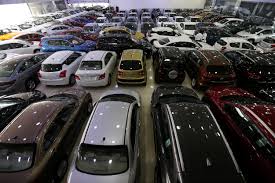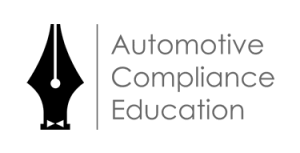Advancing Professionalism: The Essential Role of Car Dealer Education

The Importance of Car Dealer Education
Car dealer education plays a crucial role in the success and professionalism of individuals working in the automotive industry. Whether you are a seasoned veteran or just starting out in the field, continuous learning and training are essential to staying competitive and meeting the evolving needs of customers.
Product Knowledge
One of the key aspects of car dealer education is gaining in-depth product knowledge. Understanding the features, specifications, and benefits of different vehicle models allows dealers to effectively communicate with customers, address their queries, and make informed recommendations based on individual needs.
Sales Techniques
Effective sales techniques are another critical component of car dealer education. Learning how to build rapport with customers, negotiate deals, overcome objections, and close sales can significantly impact a dealer’s success in a competitive market. Ongoing training in sales strategies helps dealers refine their skills and achieve better results.
Compliance and Regulations
Staying up-to-date with industry regulations, compliance standards, and legal requirements is essential for car dealers to operate ethically and within the boundaries of the law. Education on topics such as consumer rights, finance regulations, and dealership practices ensures that dealers maintain integrity in their dealings with customers.
Customer Service
Providing exceptional customer service is a cornerstone of successful car dealerships. Education in customer service best practices equips dealers with the skills to deliver personalized experiences, handle customer inquiries or complaints professionally, and build long-lasting relationships that foster loyalty and repeat business.
Technology Integration
In today’s digital age, technology plays a significant role in automotive sales and marketing. Car dealer education includes training on utilizing digital tools, customer relationship management systems, online marketing strategies, and social media platforms to enhance outreach efforts and engage with tech-savvy consumers effectively.
In conclusion, investing in car dealer education is not just beneficial for individual career growth but also contributes to elevating the overall standards of professionalism within the automotive industry. By continuously learning and adapting to changing trends and customer preferences, car dealers can position themselves as trusted experts who deliver exceptional value to their clients.
7 Key Benefits of Car Dealer Education: Boosting Knowledge, Sales, and Customer Relationships
- Enhances product knowledge, enabling dealers to provide accurate information to customers.
- Improves sales skills, leading to better customer interactions and increased sales performance.
- Ensures compliance with industry regulations and legal requirements, reducing the risk of penalties or disputes.
- Enhances customer service abilities, resulting in improved satisfaction and loyalty among clients.
- Facilitates the integration of technology for efficient marketing and communication with customers.
- Fosters a culture of continuous learning and professional development among car dealership staff.
- Equips dealers with negotiation techniques to secure favorable deals and build strong relationships with customers.
Five Drawbacks of Car Dealer Education: Costs, Accessibility, Time Commitment, Quality Variance, and the Need for Continuous Learning
- Costly tuition fees for formal education programs can be a barrier for some individuals interested in pursuing car dealer education.
- Limited availability of specialized courses or training programs in certain geographic locations may restrict access to quality education for aspiring car dealers.
- Time-consuming nature of comprehensive car dealer education programs may pose challenges for individuals balancing work, family, and other commitments.
- Potential inconsistency in the quality of education provided by different institutions or online platforms could impact the effectiveness of learning outcomes.
- Adapting to rapid changes in automotive technology and market trends requires continuous updating of skills and knowledge, leading to ongoing investment in further education.
Enhances product knowledge, enabling dealers to provide accurate information to customers.
Enhancing product knowledge through car dealer education empowers dealers to offer accurate and detailed information to customers, fostering trust and confidence in their expertise. By understanding the features, specifications, and benefits of various vehicle models, dealers can effectively address customer inquiries, make personalized recommendations, and guide buyers towards making informed decisions that align with their needs and preferences. This level of product expertise not only enhances the overall customer experience but also positions dealers as reliable sources of information in a competitive market, ultimately leading to increased customer satisfaction and loyalty.
Improves sales skills, leading to better customer interactions and increased sales performance.
Car dealer education plays a pivotal role in enhancing sales skills, ultimately resulting in improved customer interactions and increased sales performance. By equipping dealers with the knowledge and techniques to effectively engage with customers, understand their needs, and communicate product benefits persuasively, car dealer education empowers professionals to build trust and rapport with clients. This heightened level of sales expertise not only enhances the overall customer experience but also drives higher conversion rates and boosts sales figures, positioning dealers for greater success in a competitive market.
Ensures compliance with industry regulations and legal requirements, reducing the risk of penalties or disputes.
Car dealer education serves as a crucial safeguard by ensuring compliance with industry regulations and legal requirements, thereby minimizing the risk of penalties or disputes. By staying informed about the ever-changing regulatory landscape and understanding their obligations, car dealers can operate ethically and transparently, fostering trust with customers and authorities alike. This proactive approach not only helps dealers avoid costly legal ramifications but also demonstrates their commitment to upholding the highest standards of professionalism and integrity in the automotive industry.
Enhances customer service abilities, resulting in improved satisfaction and loyalty among clients.
Car dealer education plays a vital role in enhancing customer service abilities, ultimately leading to improved satisfaction and loyalty among clients. By equipping car dealers with the necessary skills and knowledge to provide exceptional service, such as effective communication, problem-solving, and personalized attention, they can better meet the needs and expectations of customers. This heightened level of service not only fosters positive experiences but also builds trust and loyalty, encouraging clients to return for future purchases and recommend the dealership to others.
Facilitates the integration of technology for efficient marketing and communication with customers.
Car dealer education plays a pivotal role in facilitating the integration of technology for efficient marketing and communication with customers. By staying abreast of the latest digital tools, customer relationship management systems, online marketing strategies, and social media platforms, car dealers can effectively reach out to tech-savvy consumers and engage with them in a personalized manner. This technological integration not only enhances the dealership’s marketing efforts but also enables dealers to establish stronger connections with customers, ultimately leading to improved sales and customer satisfaction levels.
Fosters a culture of continuous learning and professional development among car dealership staff.
Car dealer education fosters a culture of continuous learning and professional development among car dealership staff by emphasizing the importance of staying updated on industry trends, product knowledge, sales techniques, and customer service practices. Through ongoing training and educational opportunities, dealership employees are encouraged to expand their skills, enhance their expertise, and adapt to the evolving needs of customers. This commitment to continuous learning not only benefits individual staff members in their career growth but also contributes to a more knowledgeable and customer-focused team that is better equipped to provide exceptional service and drive success in the competitive automotive market.
Equips dealers with negotiation techniques to secure favorable deals and build strong relationships with customers.
Car dealer education equips professionals with essential negotiation techniques that empower them to secure favorable deals and cultivate strong relationships with customers. By mastering the art of negotiation, dealers can navigate pricing discussions effectively, address customer concerns, and ultimately close sales successfully. These skills not only lead to mutually beneficial transactions but also establish trust and rapport with clients, fostering long-term loyalty and repeat business.
Costly tuition fees for formal education programs can be a barrier for some individuals interested in pursuing car dealer education.
The high cost of tuition fees associated with formal education programs can present a significant barrier for individuals seeking to pursue car dealer education. For many aspiring professionals, the financial burden of enrolling in such programs can deter them from acquiring the necessary knowledge and skills to succeed in the automotive industry. This financial obstacle may limit access to quality education and training opportunities, ultimately hindering the personal and professional development of individuals who wish to enter the field of car dealership.
Limited availability of specialized courses or training programs in certain geographic locations may restrict access to quality education for aspiring car dealers.
The limited availability of specialized courses or training programs in certain geographic locations poses a significant con for aspiring car dealers seeking quality education. This restriction can hinder individuals from accessing comprehensive training that covers specific aspects of the automotive industry, such as advanced sales techniques, regulatory compliance, or emerging technologies. As a result, aspiring car dealers in underserved areas may face challenges in acquiring the necessary skills and knowledge to excel in their profession, potentially limiting their career advancement opportunities and competitiveness in the market.
Time-consuming nature of comprehensive car dealer education programs may pose challenges for individuals balancing work, family, and other commitments.
The time-consuming nature of comprehensive car dealer education programs can present significant challenges for individuals juggling multiple responsibilities such as work, family, and other commitments. Balancing the demands of a full-time job and personal obligations with the rigorous schedule of an education program can be daunting, leading to potential stress and fatigue. The need to allocate substantial time for classes, studying, and practical training may strain individuals already stretched thin by their daily responsibilities, making it difficult to fully engage and excel in the educational process. This con highlights the importance of flexible learning options and support systems to accommodate diverse lifestyles and ensure that aspiring car dealers can access quality education without sacrificing other aspects of their lives.
Potential inconsistency in the quality of education provided by different institutions or online platforms could impact the effectiveness of learning outcomes.
Potential inconsistency in the quality of education provided by different institutions or online platforms poses a significant con of car dealer education. Varying standards, curriculum depth, and teaching methodologies across different educational providers may result in disparities in the level of knowledge and skills acquired by individuals seeking training. This inconsistency could ultimately impact the effectiveness of learning outcomes, leading to a lack of uniformity in the competencies and professionalism displayed by car dealers in the industry. It underscores the importance of carefully evaluating educational options to ensure that aspiring dealers receive comprehensive and standardized training to excel in their roles.
Adapting to rapid changes in automotive technology and market trends requires continuous updating of skills and knowledge, leading to ongoing investment in further education.
One significant con of car dealer education is the constant need to adapt to rapid changes in automotive technology and market trends. As new advancements emerge and consumer preferences evolve, car dealers must continuously update their skills and knowledge to remain competitive. This ongoing investment in further education can be time-consuming and costly, requiring dealers to dedicate resources to stay abreast of the latest developments in the industry. Keeping up with the fast-paced nature of automotive technology and market dynamics can present a challenge for dealers seeking to maintain a cutting-edge advantage in a constantly shifting landscape.



